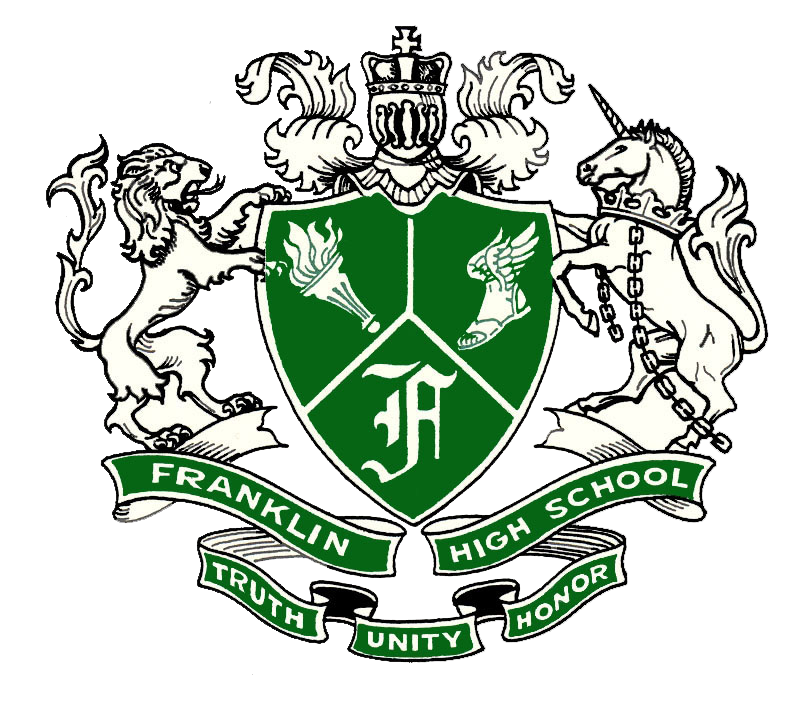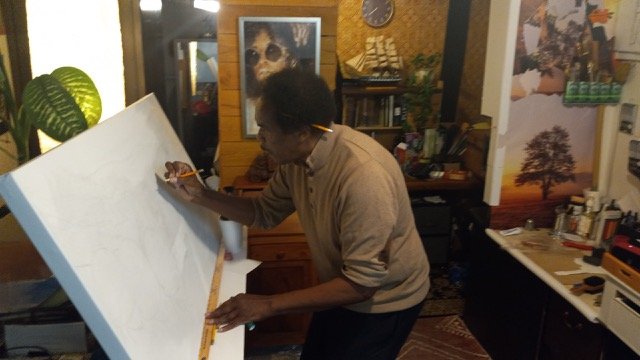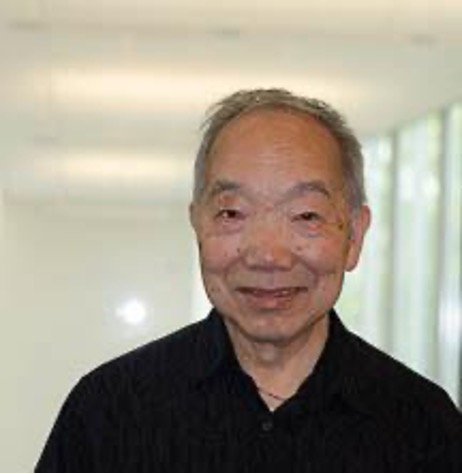Black Girl Magic is a holistic leadership development program that supports Black female students at Franklin High School. We are focused on empowering and fostering a deep and genuine relationship with African American and East African girls by providing them a safe space to gather and build engagement. We strengthen connection by volunteering at the Esperanza House, an assisted living home located in South Seattle. We focus particularly on African American, Latina, and Indigenous women and those who are living in low-income environments.
Read MoreThe 2025 season marks the twenty-fifth for FIRST Robotics Competition team XBOT #488, led by FHS alumni parent Donna Lew (Ryan Lew 2005). She established a nonprofit to support this year-round STEAM afterschool program.
Read MoreThe more I work on this newsletter the more I become aware of the gift that Franklin was for me. In part, this awareness arises out of the terrific camaraderie of working with alumni friends old and new – those known from Franklin, Asa Mercer, and John Muir, and those more recently made. It also comes from appreciating Franklin's long history, from its inception, of being at the center of diverse public education in Seattle, and how the values created still permeate the walls.
Read MoreWhen I walked the halls of Franklin High School, I dreamed of a college experience that would challenge me, inspire me, and surround me with a community that looked like me, uplifted me, and pushed me to be my best. That dream led me to Howard University—one of the most prestigious Historically Black Colleges and Universities (HBCUs) in the country.
Read MoreThe "Gang of Four" were Larry Gossett,’63, Roberto Maestas, Bob Santos, ‘52, and Bernie Whitebear. It began in the heat of battle within the walls of Franklin High School on the afternoon of March 29, 1968. Early in the afternoon, more than 100 Black students at Franklin took over the principal’s office in a classic, student protest sit-in. They said they were not leaving Principal Loren Ralph's office until their five demands were met.
Read MoreGrowing up in Seattle, born in China, Keye Luke knew that he wanted to be an artist. To his surprise, he also became a movie, television, and stage star. In the 1930s, he played teenager Lee Chan, Charlie Chan’s “number one son” in a series of popular movies. In the 1970s, he became just as famous as Master Po, a blind sage in the hit television series Kung Fu. In a screen, stage, and television career that lasted more than a half century, Luke racked up more than 150 credits as a movie, television, and voice actor. A founding member of the Screen Actors Guild, he was honored in 1991 with a star on Hollywood Boulevard’s Walk of Fame. In May 2015, Luke was inducted into the Franklin High School Hall of Fame in a ceremony at the Mt. Baker Community Clubhouse. In attendance were his niece Myrna Luke Tsukamoto and several other family members.
Read MoreDuane Pasco was part of a group of committed non-native artists, historians, linguists, and cultural scholars who shared an overpowering passion for Northwest, US, and Canadian peoples and cultures.
Read MoreMark arrived in Seattle with his family when he was three, in the early 1940s during World War II. The Dedomenico family, second-generation Italian immigrants, had moved north from California after their pasta factory burned down, and reestablished it in Seattle. They lived above the Golden Grain Macaroni factory in Georgetown while the business produced rations for the military. A few years later the family settled in Seward Park.
Read MoreIt is with profound sadness that I am notifying the Quaker Times of the loss of a sister and a special Franklin alum with the passing of Margaret (Midge) (Duncan) Patten, class of 1960. Midge passed away last April, after battling cancer for well over a year, and inspired many friends as well as her extended family, with how to be graceful under difficult circumstances.
Read MoreAs a third grader, Herman Houston’s (’67) teacher called his artwork “doodling” but he decided it wasn't doodling if it was his work, he was going to love it and call it art. “I didn’t care what anybody else thought about my work. I didn’t know it at the time, but that attitude has allowed me to relax and enjoy my work without the anxiety of a critical voice. Of course, I have my personal standard, but once I reach that bar I am always pleased with what I’ve painted. When I paint, I only need my own voice to give me validation”.
Read MoreOn an unusually warm May evening, 135 Quakers and supporters gathered in community to celebrate Quaker excellence, both past and present. At this Franklin Hall of Fame event, a theme ran through speeches from the podium and conversations after the celebration – we all have a deep pride in our alma mater and in the community-shifting changes our fellow alums have effected.
Read MoreWhen he was ten, in 1942, Herb and his family, along with 120,000 other Americans of Japanese ancestry, were forcibly removed from their homes and the Tsuchiya family was sent to the Minidoka War Relocation prison camp in Hunt, Idaho, where they stayed until their release in 1945.
Read MoreIt’s true! Absolutely true. A “Rising Tide” lifts every student! That is what happened at the second annual “Rising Tide Scholarship/Career Fair” sponsored by the Franklin Alumni Association and Foundation (FAA&F).
Read MoreOften when we think about social justice leadership, the people we celebrate are the firebrands, the orators, the ones in front of the microphone.
Read More
The past few years Covid has loomed large over clubs and activities at Franklin. The pandemic forced every group to adapt. This year they are not only getting back to normal, but they are also even better. Two reemerging clubs include Mock Trial and the Theater Department. I talked to students in these programs about how they adapted to the pandemic, and what is new this year in the return to normalcy.
James Rasmussen stood on the steps that descended below street level at the corner of 1st and Jackson for over a decade -- a head above the sidewalk. On those steps he watched the world go by, first as an employee and later as the owner of Bud’s Jazz Records in Seattle’s historic Pioneer Square.
Read MoreJean was raised in Seattle's Rainier Valley and graduated from Franklin High School in 1948. She attended the University of Washington for a little more than a year and began her career in the insurance industry. In 1962, Jean opened the doors at Jean VelDyke Realty Inc. on Rainier Avenue, where she could remain close to and serve the community she loved and cared for very much.
Read MoreReflections from: Jeff Abolofia (’67); Geri Alhadeff (’67); Steve Ticeson (’67); Mary Duryee, (’67)
At the age of 70, Ron Mamiya died on May 26, 2019, surrounded by his family. He stayed strong, hopeful, and positive throughout his battle with prostate cancer, even up until the last days.Born in 1949 to Yoshi and George Mamiya, Ron was the eldest of 3 sons. He was born and raised in Seattle. Ron grew up on Beacon Hill, attended Franklin High School, University of Washington, and Gonzaga University, where he earned his law degree in 1976. Ron went into private practice in Seattle and was appointed as a Municipal Court Judge in 1980. He served as a judge until his retirement in 2010. He also served on several appointed commissions for 20+ years in Seattle.
At Franklin he was Senior class President, and a member of the Bel Canto choir, touring Europe with the choir in 1966.
Read MorePro golf was still segregated when he won
Wright was a standout golfer and basketball player when he attended high school in Seattle, as well as at Western Washington University. He was in his senior year of college when he entered the USGA Amateur Public Links Championship. After his groundbreaking victory there, Wright had a dream of playing golf professionally, but it wasn’t an easy road for a Black man at a time when the PGA’s bylaw still included a “Caucasians only” clause. He played in PGA Tour events beginning in 1960, but he was unable to gain any sponsors, and full-time professional play was an unsustainable path in this segregated era. Wright played in a handful of other PGA Tour events over the years while working as a teacher and a car salesman, and he later became a teaching pro at the California golf course the Lakes at El Segundo.
Read MoreOnly 20% of Scott VanderWey’s students request enrollment his in Wood Shop class but his focus on community and family in the shop becomes contagious and by the end of the semester almost 100% report that they loved the class.
Read More


















